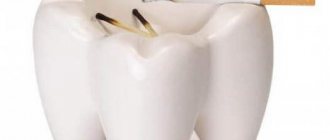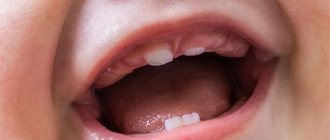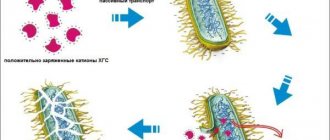Our food is a supplier of nutrients that are used for cell growth and development. If there is a lack of any vitamins and minerals, then the normal state of the body begins to suffer. Teeth are no exception. With an incorrect and unbalanced diet, they can begin to break down. On the one hand, this is due to the weakening of protective barriers, and on the other, to direct damage to the structure. How to eat right to maintain and increase the health of the dental system?
Useful products containing micro- and macroelements
Thanks to a well-formulated diet, teeth receive from food the elements necessary for aesthetics and health. To try to balance your diet yourself, it is important to understand which elements are most suitable for maintaining the basic functions of a person's teeth.
It is not at all necessary to eat only high-quality food purchased in expensive stores. It is enough to properly balance the diet so that the dental tissues receive everything they need.
The daily diet requires the presence of necessary vitamins, micro- and macroelements, without which dental health will be undermined. Experts advise following the daily norm, which will allow you to keep your teeth healthy and seek help from dentists less often.
Calcium
An element that everyone knows about. It is considered the main component of dental tissue. Lack of it in the diet leads to rapid tooth decay. The absence or insufficient amount of calcium in food leads to the destruction of enamel, a decrease in the resistance of teeth to various influences, and leads to the formation of caries and gum pathologies.
To get the necessary element, it is recommended to consume the following products:
- legumes (beans, beans);
- eggs;
- hard cheeses;
- almond;
- sesame;
- raisin;
- black bread;
- dairy products (cottage cheese, milk, cheese curd);
- White cabbage.
For adults, the daily norm is 800 g per day. Children and pregnant women need larger dosages. Their daily norm exceeds 1200–1800 g of calcium.
Phosphorus
This microelement is a connecting link with which it is possible to correctly distribute calcium particles obtained from food. Strengthens enamel and hard tooth tissues. Natural phosphorus is found in large quantities in potatoes, legumes, cheese, poultry, beef, fish, buckwheat, rice and eggs.
The daily intake of phosphorus for an adult is 1500–1800 g.
Fluorine
Foods that are good for teeth should include sea fish, pork, buckwheat, walnuts and poultry. They contain a large amount of natural fluoride, which protects teeth from negative external influences.
Lack of fluoride leads to the formation of caries and periodontal disease.
Every day a person should receive at least 7–10 g of fluoride from healthy foods. If this is not ensured, pathogenic microorganisms that enter with food, air and drink destroy our teeth.
Iron
An important element in the body's hematopoietic system is iron. It is obtained from peas, mushrooms, spinach, apples, walnuts, beef liver or seaweed. It ensures normal blood supply to the gums and nearby tissues around the tooth. A lack of iron quickly leads to gum damage - periodontal disease.
The daily dose of the element ranges from 10 to 18 g. In the absence of the element entering the body, pathologies develop in a short time and quickly affect the gums.
| Microelement | Products containing |
| Calcium | Milk, cottage cheese, eggshells, beans, beans, sesame seeds, almonds, white cabbage, black bread. |
| Phosphorus | Potatoes, legumes, cheese, poultry, eggs, beef, fish, buckwheat, rice. |
| Fluorine | Pork, walnuts, poultry, sea fish. |
| Iron | Peas, egg yolk, spinach, apples, walnuts, beef liver, mushrooms, seaweed. |
Knowing which foods contain useful microelements, you can create a competent diet to get everything you need for healthy teeth.
The Importance of Nuts and Seeds for Oral Health
Nut kernels and seeds of various plants contain a high concentration of substances that are beneficial for healthy teeth and gums. That is why it is extremely important to add these products to the daily diet of both adults and children. But, it should be remembered that each type of nuts and seeds has its own unique composition and, accordingly, has a certain positive effect. For example:
- pine nuts – promote the development of dental bone tissue, contain a lot of magnesium;
- sesame – helps remove plaque, saturates tooth tissue with calcium, thereby maintaining the strength of the enamel;
- peanuts, pumpkin seeds - rich in zinc, etc.
In order for the body to receive the maximum list of necessary substances, it is advisable to alternate pine and walnuts, cashews, Brazil nuts, hazelnuts, sunflower seeds, sesame seeds, pumpkin seeds, flax seeds and others in the diet. Seeds and nuts must be fresh, not roasted. Also, you should remember that cracking nuts and cracking seeds with your teeth is extremely dangerous. It is better to purchase already cleaned kernels, or use appropriate devices to clean them.
Top 8 healthy foods for teeth
A properly selected diet is the key to excellent health. This also applies to teeth. Products for teeth are a fairly extensive list. They contain important components that are involved in the formation of teeth and their strength, despite external influences.
There are a number of foods that are extremely harmful to teeth. Not everyone knows about their destructive effects.
From the point of view of doctors, healthy foods are a list of foods that:
- Strengthens the maxillofacial bones.
- It has a disinfecting effect and inhibits microflora inside the oral cavity.
- It has a massage effect on the gums and improves blood flow in them.
- Prevents the formation of tartar, removing even small plaque.
If the selected product meets one or more criteria, it is considered beneficial for the oral cavity.
You don’t have to worry about dental health if a person’s food is rich in microelements and vitamins. They ensure normal blood supply and protect the enamel from external influences of harmful substances and pathogenic microorganisms.
To avoid caries and diseases of the jaw system, it is important to regularly eat the following foods:
- Buckwheat and millet. They are responsible for the calcium content and its easy absorption in the body.
- Nuts and seaweed. They contain a large amount of iron, which helps absorb calcium and distribute it in sufficient quantities throughout the body.
- Wheat bran and pumpkin seeds. They contain a large amount of vitamins and microelements and help strengthen local immunity.
- Vegetables. Fresh vegetables and fruits are full of useful components, which must be supplied to the body in sufficient quantities.
- Dairy products. They are a carrier of calcium, without which dental health is impossible.
- Sea fish. A storehouse of vitamins and microelements, without which it is not possible to keep teeth healthy.
- Poultry and pork. They contain healthy fats and vitamins and strengthen teeth.
- Legumes. You can’t refuse to eat beans, beans or peas; they are rich in multivitamins that strengthen tooth enamel.
Products for strengthening teeth are varied and useful. Creating a delicious and satisfying menu will not be a problem.
Drinks that increase the risk of tooth decay
- Sodas like Coca-Cola stain the surface of tooth enamel and destroy bone tissue in the body.
- Tea helps wash out calcium and stains teeth, while coffee also promotes the growth of bacteria in the oral cavity.
- Energy drinks destroy tooth enamel due to large amounts of acids.
- Store-bought fruit juices contain large amounts of sugar.
You don’t have to completely give up all drinks, but you need to follow safety precautions when drinking them. For example, drink juices or tea through a straw to minimize contact with teeth.
Top 8 healthy foods for gums
Bleeding, weak and pathologically altered gums will not be able to support healthy teeth. That is why, first of all, you should select useful substances for healthy gums, and then strengthen your teeth.
In numerous illustrations showing healthy foods for teeth in pictures , you can see what foods should be included in the diet to maintain healthy gums:
- Pumpkin, carrots, and apples, due to their structure and chemical composition, ideally keep gums in order.
- Dairy products strengthen the circulatory system.
- Leafy vegetables contain a large amount of vitamins.
- Sea fish is full of multivitamins and healthy fats.
- Garden and forest berries are a real chest of vitamins.
Eating these foods daily will lead to healthy teeth. They are oversaturated with vitamin complexes and other useful components, adjust metabolic processes in tissues and clean teeth from plaque. As a result, the gums become strong and the teeth become healthy.
How to eat for healthy teeth
The staff of our dental clinic is ready to keep your teeth safe and healthy. We have an impeccable reputation and a huge number of positive reviews from satisfied patients. Our specialists are true professionals in their field with a high level of qualifications and a huge amount of experience. They use only advanced equipment and innovative technologies.
Our clinic has a number of other undeniable positive qualities:
- Pleasant pricing policy;
- Wide range of professional services;
- Respectful care for patients and the search for an individual approach to them;
- High level of qualification of each specialist;
- The ability to pay for services in any convenient way;
- Using only high-quality consumables, professional equipment and advanced technologies;
- Convenient location of the clinic;
- Courtesy and politeness to every client;
- Easy to use website interface;
- Possibility to make an appointment in advance;
- Free consulting services;
- Availability of all necessary results;
- Work for results and a desire to help.
Any questions? Then feel free to call the numbers listed on the clinic’s official Internet resource am-dent.ru.
Top 8 harmful foods
Lists of healthy food ingredients have been studied for a long time and represent a wide range. But there are also components harmful to teeth that quickly destroy enamel and contribute to the loss of healthy teeth due to weak gums.
These products primarily include:
- Sugar and sweets, except honey. They disrupt the acid-base balance in the mouth, contribute to pathological processes and quickly destroy enamel.
- Caffeine. The beneficial components are washed out and the body becomes dehydrated.
- Roasted seeds are not beneficial when brushing your teeth. They mechanically damage the enamel.
- Pieces of dried fruit , if you do not brush your teeth immediately after eating, get stuck in the space between the teeth and disrupt the acidity.
- Sugary drinks provoke inflammatory processes.
- Temperature changes and eating hot and cold food at the same time lead to rapid deterioration of teeth.
Food that is too hard and too soft will not be beneficial. They help reduce the strength of enamel and gums. This greatly impacts your overall oral health.
Nutrition in caries prevention
A radiant smile, absolutely healthy teeth and gums - how many of us can boast of this?
Two-thirds of the world's population believes that oral health depends solely on properly selected toothpaste, and only dentists can convince the patient that this conclusion is wrong.
In this article, nutritionists and pediatric dentists tell you how nutrition affects the health of your teeth, and what foods you can use to protect your teeth from caries.
Causes of caries - how does nutrition affect dental health?
Caries is rotting, destruction of hard tooth tissues, which is not always noticeable in the initial stages. Most often, we notice caries only when the teeth turn yellow, holes appear in some places and sensitivity to hot or cold foods, sour or salty, and the smell from the mouth becomes unpleasant. But this form of caries can already be considered advanced, since at the initial stage it is difficult to notice small yellow spots - and this means that you need to protect yourself from the enemy even before he appears in your field of vision.
There are many reasons for the appearance of caries:
- Poor oral hygiene allows bacteria and fungi to multiply and destroy tooth enamel at lightning speed.
- Improper nutrition, as a result of which the composition of saliva changes - for example, your excessive consumption of sweets is liked by harmful bacteria, because this is their best nutrition, and they multiply in a sweet environment with particular enthusiasm. However, it is not entirely true to believe that enamel is destroyed by sweets. The fact is that tooth decay occurs from acid produced by bacteria that feed on sweets.
- Lack of minerals that help strengthen tooth enamel - fluoride is rightfully considered one of these useful elements. Penetrating into the body of a bacterium, fluoride deprives it of the ability to digest sugar, as a result of which the bacterium produces less acid that is dangerous for teeth. In addition, when you eat healthy food, fluoride literally attracts other substances that can quickly restore damaged areas of enamel. In addition to fluoride, calcium is an extremely important element for teeth, and vitamin D helps it be better absorbed.
- The composition of saliva also affects the health of your teeth—dentists note that patients with more viscous saliva are more likely to suffer from tooth decay. It should also be remembered that too acidic saliva destroys the bone tissue of the tooth, while sweet saliva promotes the rapid proliferation of bacteria. It is important that the saliva is also healthy - acidic enough to destroy bacteria, but not harmful to the teeth themselves. This is why it is important to eat healthy foods - they play a role in producing proper saliva.
- Diseases of the endocrine system.
- Disturbance of metabolic processes in the body.
- Weakened immunity.
- Smoking.
- Infections – both in the oral cavity and throughout the body.
- Genetic problems - tooth structure, saliva composition and other information can be passed on from generation to generation.
- Braces - in themselves, they do not cause caries, but caring for the oral cavity becomes much more complicated. And if you don’t devote enough time and attention to your dental health, it’s unlikely that you’ll ever be able to boast a beautiful smile.
- Crowded teeth are quite difficult to care for and increase the risk of developing caries, because the closer the teeth are to each other, the more hard-to-reach places there are to clean.
- Ecology is another factor that affects the health of not only our teeth, but also the body as a whole. Water, air, food may differ in composition and contain fewer nutrients depending on the region of residence.
As you can see, there are many factors influencing our health. But why should you pay special attention to nutrition? Yes, because you and I are unlikely to be able to influence the ecology and genetics, but learning to choose healthy products is not difficult!
Foods and drinks that cause caries in adults and children - dangerous and harmful dishes
Many of us want to eat healthy, but at the same time we mistakenly believe that absolutely all fruits and vegetables, diet bars, muesli, and natural juices are only beneficial, because they contain a minimal amount of sugar. Do you think so too? Then this list is for you!
Products hazardous to teeth:
- Hot and cold food – temperature changes weaken tooth enamel.
- Sweets - candies (toffees are recognized as the most dangerous - they stick strongly to the teeth and can get stuck in hard-to-reach places), waffles, ice cream, pastries, cakes, chocolate (especially white, milk and bars with fillings), various bars (including diet ), and so on. Although we enjoy eating sweets, all this deliciousness not only does not bring any benefit to the body, but also contributes to the proliferation of fungi and bacteria, which subsequently form acid that is destructive to the tooth.
- Acidic foods - lemon and any citrus fruits themselves are rich in vitamins, and therefore beneficial for the body. But tooth enamel suffers greatly from large amounts of acid.
- Some fruits, berries and even vegetables can be considered relatively harmful , especially if consumed in excessive quantities - currants, blueberries, apples, grapes, bananas, dates, pineapple, figs, potatoes, green peas, tomatoes and others. The most dangerous thing in this case is unripe fruits, which contain a lot of acid, but even a ripe product can weaken tooth enamel. Nutritionists and dentists are mixed on this issue. For example, a hard apple on one side helps to clean the surface of the tooth and massages the gums, while the pieces of pulp remaining in the oral cavity ferment and form molecules of vinegar - the worst enemy of bacteria. On the other hand, research shows that fruits today contain much more sugar and carbohydrates than ten to fifteen years ago. This means that modern people should consume them in smaller quantities.
- Seeds, nuts, dried fruits, muesli, breakfast cereals, chips, crackers - stick to the teeth and get stuck, and unpeeled seeds also erase the surface of the tooth, because most of us crack the kernels not with our fingers, but with our teeth.
- Sauces - mayonnaise, ketchup, various marinades are made mainly on the basis of acetic acid, and in large quantities it corrodes the enamel.
- Marinated preparations – canned tomatoes, cucumbers and other vegetables that many people love, which can be bought in the supermarket for a long time, are also saturated with acid.
- Milk would seem to be one of the healthiest foods, because milk is rich in calcium and other substances. But lactose is a carbohydrate that creates a favorable environment for the growth of bacteria in the mouth. Store-bought milk is considered the most harmful, because manufacturers often add sugar and many other harmful substances to such packages.
- Kissel and sticky porridges - after eating them, sticky substances stick to your teeth for a long time, just like after snacking on viscous and sticky dried fruits.
- Fast food - all processed foods and fast food contain aggressive chemicals that are dangerous not only for teeth, but also for health in general. Flavor enhancers, preservatives, dyes are unconditionally harmful additives.
- Drinks and foods that cause dry mouth - these include dry snacks (for example, salty chips cause severe dry mouth and thirst), alcohol (including wine - in small quantities it is good for the body, but still harmful to the oral cavity) , bread, pasta and so on. After them, salivation decreases significantly, and saliva helps our teeth fight bacteria.
Drinks harmful to teeth:
- Cola disrupts metabolism in the body, stains teeth, and severely destroys bone tissue.
- Coffee – we are talking about unnatural coffee with various additives and sugar, which not only stain teeth, but also contribute to the development of bacteria.
- Black tea
- Energy drinks and various so-called sports drinks - due to their high acid content, lead to enamel erosion.
- Carbonated soft drinks most often contain a lot of sugar and an increased amount of acids, and the friendship of these two completely different pests leads to rapid and irreversible destruction of tooth enamel.
- fruit juices are harmful due to their high sugar content, and homemade fresh juices (especially orange, grapefruit, lemon) are too acidic, and therefore are also dangerous for enamel.
- White wine
- Hot and very cold drinks have a negative impact not only on dental health, but also on stomach function.
On a note! You should know and remember that there is a category of products that are beneficial for the body as a whole, but harm tooth enamel. But is it worth giving up your favorite foods and drinks? No! Just learn to use them correctly. For example, you can drink milk, fruit juices, coffee or tea through a straw - this way you minimize their contact with your teeth. And after eating breakfast cereal or sticky toffees, chew sugar-free gum - it will help remove food debris from the surface of your teeth.
Healthy foods for teeth – how to strengthen and protect teeth from caries?
A beautiful smile is pride. But not everyone can boast of healthy teeth. Dentists tell us how to protect teeth from caries, strengthen enamel, and whether it can be whitened with food.
Foods and drinks that are good for teeth:
Dairy and fermented milk - cottage cheese, kefir, yogurt, cream, natural yogurt without sugar or additives, cheeses (brynza, parmesan, cheddar and others, especially hard cheeses). Fluorine and calcium are the most important elements for human bone tissue. Well, for better absorption of calcium, you need to enrich your diet with vitamins C, D, B9 and phosphorus. Dairy products allow you to saturate your body with calcium so that your teeth are strong, and enrich your diet with vitamins A, B, D, phosphorus, magnesium, potassium, iron, proteins and lactic acid. All these substances not only strengthen teeth, but also nourish the nervous system and participate in the formation of hemoglobin in the blood.- Egg shells are one of the most valuable sources of natural calcium.
- Broccoli – contains calcium, has strong antibacterial properties, protects the oral cavity from periodontitis.
- Greens (celery, dill, parsley, lettuce, onions, tops of vegetables - bean greens, young turnip tops, and mint) - these herbs contain calcium, help freshen breath, and have antibacterial properties.
- Hard fruits and vegetables (apples, carrots, beets, cucumbers) – massage the gums, cleanse the tooth surface of plaque, stimulate salivation, saturate the body with calcium, magnesium, phosphorus, iodine, fluorine, iron, vitamins B, D, E, K, PP , and many other useful elements.
- Fatty fish and seafood are sources of vitamins B, D, phosphorus, fluorine, iodine and calcium.
- Rice is a source of calcium, potassium, magnesium and many other elements that are beneficial for teeth and the body as a whole.
- Berries (strawberries, cranberries, wild strawberries and others) - the juice of many of them, which has a bactericidal effect, serves as an excellent means for preventing caries, and each type of berry is rich in many minerals and vitamins.
- Kiwi, lemon, lime and other citrus fruits are rich in vitamins, help reduce bleeding gums, and reduce the risk of inflammation. If you consume lime in proper quantities, you can slightly whiten your tooth enamel. The main rule is not to replace a good diet with sour fruits, because you already know that acid eats away not only plaque on the teeth, but also the bone tissue itself.
- Dark chocolate (natural, very low sugar) – The cocoa butter and cocoa mass in this treat neutralize the effects of sugar on teeth and prevent bacteria from attaching to their surface.
Cashew nuts, almonds, pine nuts, sesame seeds – rich in vitamins and minerals, essential amino acids and polyunsaturated fats, capable of destroying bacteria that harm teeth.- Honey is an excellent antibacterial agent that can replace propolis. And dentists recommend treating periodontal disease and gum inflammation for them. Honey can be used as effectively as wax honeycombs - as a means to treat stomatitis and prevent inflammation of the mucous membranes.
- Coconut oil kills strains of microorganisms that produce the same acid that destroys tooth enamel. Coconut oil is active against fungal infections and also improves the absorption of calcium and magnesium.
- Natural coffee (in small quantities) - having unpleasant disadvantages, namely staining our teeth yellow and washing calcium from the body, insoluble coffee also has its advantages. So, because of coffee, many bacteria cannot attach to the teeth, and therefore cannot cause caries.
- Tea – in small quantities, natural tea serves as a good antiseptic and antioxidant, helping to freshen breath .
- Fluoridated water strengthens enamel and inhibits the formation of plaque.
Caring parents should accustom their child to healthy foods from early childhood, trying to prepare tasty dishes from them - both the baby will happily have breakfast and his teeth will be healthier.
Adviсe
Experts note that the effects of even the most harmful substances and products can be neutralized. It is enough just to follow the general recommendations for dental care. For example, carry out hygienic brushing or rinsing after every meal, brush your teeth twice a day according to the rules outlined by dentists, and do not forget about visiting a professional office, even if nothing hurts.
A well-planned diet and timely prevention of oral problems will help keep your teeth healthy and beautiful. As for products for children, the list is practically unchanged. It is important to observe the quantitative composition and take vitamins if they are lacking in the food the child receives. Preventive examinations are also necessary every six months to prevent problems in time.
What measures should be taken to maintain dental health during and after meals?
It is necessary, if possible, to avoid snacking between meals, since tooth enamel can be restored during those few hours when a person does not eat anything. In addition, you should not eat too cold or too hot food, especially dishes that contrast with each other in temperature, to prevent the formation of microcracks in the enamel. What you eat must be chewed thoroughly and intensively. Avoid foods that are too hard and require effort to chew. Juices should be drunk through a straw. Acid-containing fruits and citrus fruits are best chewed and swallowed quickly.
After meals, you can use chewing gum in which the sugar is replaced with dental-safe sweeteners (for example, xylitol). When consuming seeds, baked goods and confectionery products containing them, as well as corn in any form, you cannot do without a toothpick. After each consumption of sugar-containing and acidic foods, it is necessary to thoroughly rinse the mouth with water or a special elixir or brush your teeth.










